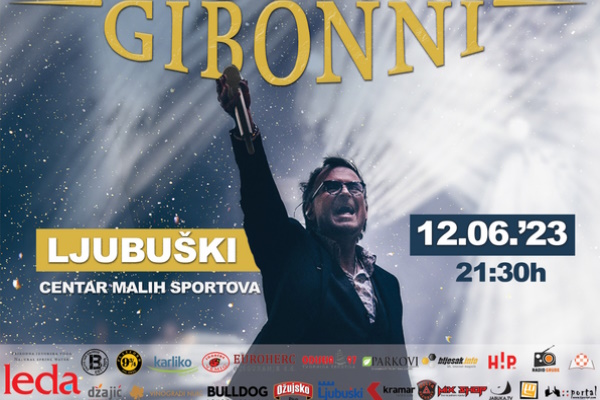Formula 1's Marketing Revolution: Stefano Domenicali's Leadership

Table of Contents
Revitalizing the F1 Brand Identity
Domenicali's strategy prioritized a complete overhaul of Formula 1's brand identity to resonate with a broader, more modern audience. This involved a multi-pronged approach focused on modernization and attracting a younger demographic.
Modernizing the Visual Identity and Branding
The revitalization began with a refresh of the visual identity. This included:
- Updated logo and branding guidelines: A more contemporary and streamlined logo was introduced, reflecting a shift towards a more dynamic and accessible brand image. This was crucial for improving the overall F1 branding.
- Emphasis on storytelling and emotional connection: Instead of solely focusing on race results, F1 began to emphasize the human stories behind the drivers, teams, and the sport itself. High-quality video content, documentaries, and behind-the-scenes access helped forge a deeper emotional connection with fans.
- Consistent branding across all platforms: From the official F1 website and app to social media channels and merchandise, a consistent brand message and visual identity were implemented, ensuring a cohesive brand experience. This consistent brand activation across channels maximized impact.
Examples of successful rebranding initiatives include the launch of the "Drive to Survive" Netflix documentary series, which humanized the sport and introduced it to a new audience, and the redesigned website which improved user experience and accessibility significantly.
Attracting a Younger Demographic
A key component of Domenicali's strategy was to attract a younger demographic, specifically Gen Z and Millennials. This involved:
- Strategic partnerships with streaming services and social media platforms: Collaborations with platforms like Netflix, TikTok, and Instagram ensured F1's content reached younger audiences where they already spend their time.
- Creation of engaging content tailored for younger audiences: Short-form videos, highlight reels, and interactive content on social media platforms proved highly effective in capturing the attention of younger viewers.
- Focus on driver personalities and behind-the-scenes content: Humanizing the drivers and offering glimpses into the inner workings of the teams fostered a greater sense of relatability and engagement.
Successful campaigns targeting younger audiences include the use of interactive polls and Q&As on Instagram and TikTok, featuring driver interviews and showcasing their personalities beyond the racetrack. This exemplifies successful audience engagement strategies within the broader context of global motorsport marketing.
Expanding F1's Global Reach
Domenicali's leadership has also focused on expanding F1's global footprint, increasing its visibility and revenue streams worldwide.
Strategic Partnerships and Sponsorships
Securing high-profile sponsorships was crucial in increasing global reach and revenue. This involved:
- Securing high-profile sponsorships: Partnerships with global brands aligning with F1's values enhanced brand prestige and appeal to a wider audience.
- Focus on global brands: Collaborations with internationally recognized brands expanded F1's reach into new markets and demographics.
- Development of new sponsorship packages: Innovative sponsorship models were introduced, offering brands a wider range of engagement opportunities beyond traditional advertising.
Examples of impactful sponsorship deals include the partnerships with major brands across diverse sectors like luxury goods, technology, and finance, reflecting the increased desirability of F1 as a marketing platform.
Global Expansion of Races and Events
Expanding the F1 calendar into new markets significantly increased exposure and fan engagement. This involved:
- Introduction of new Grands Prix in emerging markets: Adding races in countries with rapidly growing economies and passionate motorsport fans broadened F1's appeal and fanbase.
- Development of supporting events and experiences: Fan festivals, esports competitions, and other supporting events created more touchpoints for engagement and enriched the overall fan experience.
- Growth of the F1 calendar: Increasing the number of races per season provided more opportunities for sponsors and broadcasters, maximizing exposure and revenue generation.
The successful addition of races in new markets like Miami and Las Vegas demonstrates the effectiveness of this global expansion strategy in boosting the sport's international appeal within the context of sports marketing.
Leveraging Digital Marketing and Social Media
Domenicali’s transformation of Formula 1 has heavily leveraged the power of digital marketing and social media.
Enhanced Digital Engagement
F1 invested significantly in enhancing its digital presence to provide a more engaging experience for its fans.
- Investment in a robust digital strategy: Improving the website, app, and online content increased accessibility and engagement.
- Improved website and app functionality: User-friendly platforms enhanced fan experiences, providing easier access to information, live race updates, and interactive content.
- Increased use of data analytics: Understanding fan preferences and behaviors allowed for more targeted and effective marketing campaigns.
The data-driven approach allowed for the optimization of content and marketing strategies, ultimately improving the effectiveness of all digital marketing campaigns.
Social Media Strategy and Community Building
F1’s social media strategy focused on building a strong online community around the sport.
- Creation of engaging content on all major social media platforms: Tailoring content to different platforms maximized reach and engagement across diverse demographics.
- Direct interaction with fans through social media channels: Responding to comments and questions, fostering a sense of community and direct connection with fans.
- Building a strong online community: Creating a space for fans to connect, discuss races, and engage with each other strengthened brand loyalty.
Successful social media initiatives include interactive live streams during races, Q&A sessions with drivers, and behind-the-scenes content, all contributing to the vibrant online F1 community.
Conclusion
Stefano Domenicali's leadership has undeniably revolutionized Formula 1's marketing approach. His focus on brand revitalization, global expansion, and digital engagement has catapulted F1 to unprecedented heights of popularity and financial success. By attracting a younger demographic, strengthening the sport's global brand, and enhancing fan engagement worldwide, Domenicali has solidified F1's position as a major player in the global sports and entertainment landscape. To further understand the innovative marketing strategies shaping the future of Formula 1, continue exploring the latest news and insights on F1's marketing efforts under Domenicali's leadership. Understanding Formula 1's marketing revolution is crucial for anyone interested in the business of global motorsport.

Featured Posts
-
 5 Tips For Success Dos And Don Ts For Private Credit Jobs
May 05, 2025
5 Tips For Success Dos And Don Ts For Private Credit Jobs
May 05, 2025 -
 Gibonni U Puli Datum Koncerta I Sve Informacije
May 05, 2025
Gibonni U Puli Datum Koncerta I Sve Informacije
May 05, 2025 -
 Me T Department Issues Thunderstorm Warning For Kolkata And Nearby Regions
May 05, 2025
Me T Department Issues Thunderstorm Warning For Kolkata And Nearby Regions
May 05, 2025 -
 Churchill Downs Renovations Race Against Time Before Kentucky Derby
May 05, 2025
Churchill Downs Renovations Race Against Time Before Kentucky Derby
May 05, 2025 -
 Analyzing Fleetwood Macs Most Popular Songs Reasons For Continued Success
May 05, 2025
Analyzing Fleetwood Macs Most Popular Songs Reasons For Continued Success
May 05, 2025
